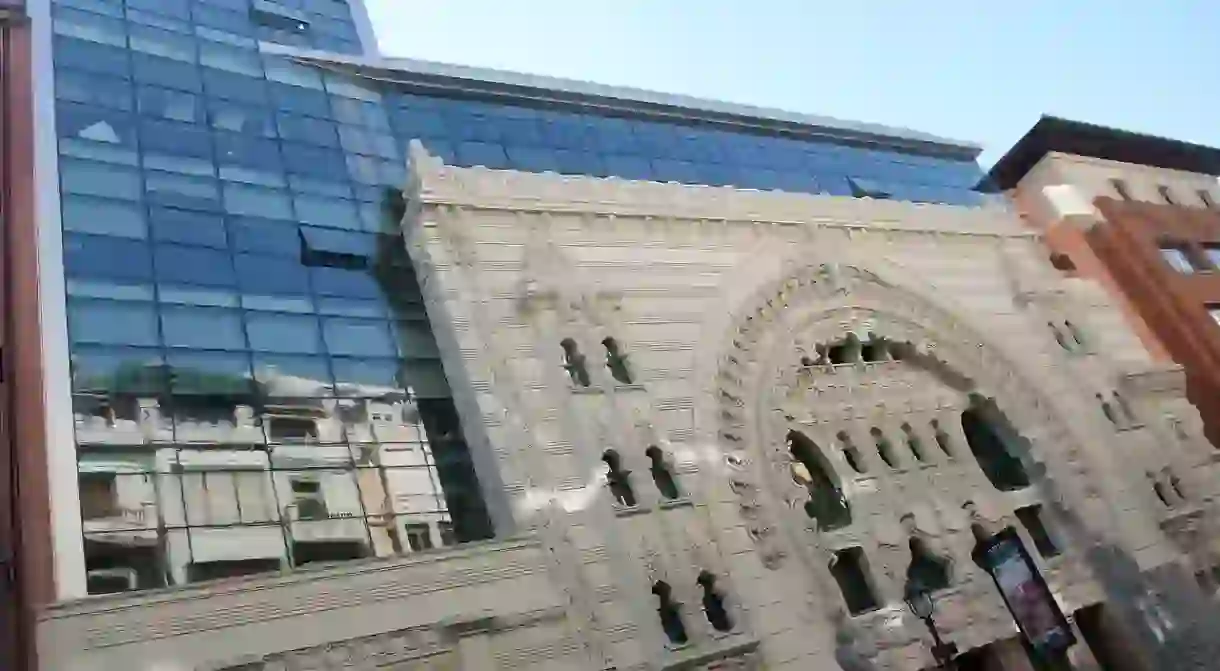A Brief Introduction to Bilbao's Campos Eliseos Theatre

The Basque city of Bilbao is home to many impressive buildings – including the Guggenheim Museum by Frank Gehry, the Azkuna Zentroa by Philippe Starck and the Catedral de Santiago. One building that can’t be missed during your time in the city, however, is the magnificent Art Nouveau Campos Eliseos Theatre.
Introduction
The Campos Eliseos Theatre is located in the heart of Bilbao, just 1.5 kilometres south of the city’s famous Guggenheim modern art museum. One of Bilbao’s most important buildings, it is a listed monument and is considered to be one of the best examples of Art Nouveau architecture in the Basque Country.
History
The theatre was designed by the architect Alfredo Acebal, along with the Basque-French decorator Jean Batiste Darroguy, and was inaugurated back in 1902. Darroguy added many elements to the design, the most notable being its impressive façade. A horseshoe shape, it is covered in intricate plasterwork and detailing, and has earned the building its nickname – ‘The Chocolate Box’ – with the locals. In the beginning, the theatre was used for comedic performances, as well as a stage for the newly-conceived Bilbao Opera; later on, however, it also become a type of cinema, screening short films. The interior of the theatre was changed slightly in 1920, adding a grand staircase by Félix Agüero, and again more dramatically in 1943 by Manuel Cabanyes.
In 1978, the theatre was badly damaged from a bomb planted by the terrorist group ETA, because of workers’ disputes, and it took two years of restoration work and reforms by architects Rufino and Pedro Basáñez before it could be re-opened.

Restoration Project
In the 1990s, the theatre again had problems and it was in need of major restoration work due to leaking issues and structural damage. Its famous façade was given a makeover, whilst preserving the original designs by Darroguy, and the rest of the building was virtually rebuilt, giving it a modern facelift, without compromising its Art Nouveau style. After being closed to the public for almost 20 years, the theatre was finally re-opened in 2010.
Today, it offers a modern space – seven stories tall, with capacity for 800 people, and a surface area of more than 7,000 square meters. It also offers the latest in set design and cutting-edge technology. As well as seeing performances here, visitors can also take guided tours of the theatre’s plush interior.













